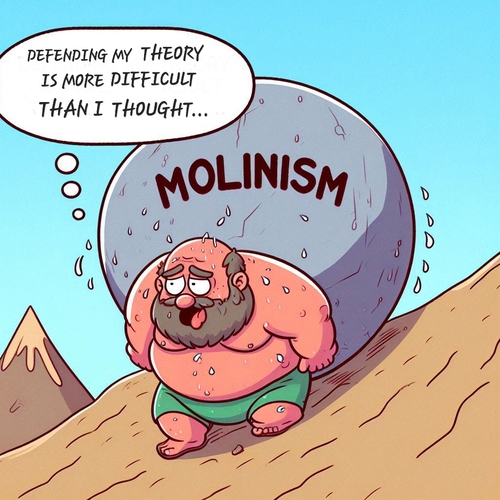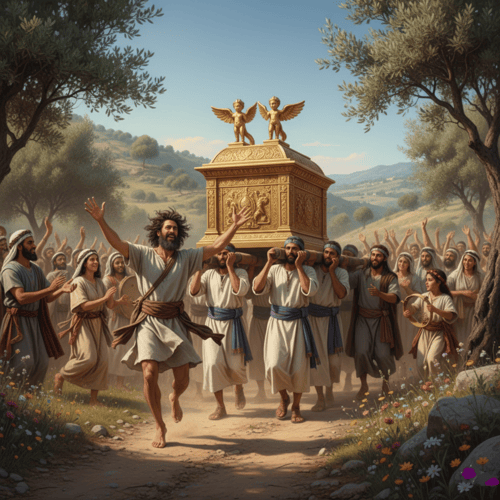Near Yet Far: How Can God Be Both Transcendent and Immanent?
God Is Both Transcendent and Immanent: The burning bush encounter in Exodus 3 provides a striking picture of God’s dual nature. As Moses approached the bush—that burned yet was not consumed—God commanded him to remove his sandals, a mark of His utter holiness and transcendence. Yet, that same moment, this transcendent God drew intimately near, speaking directly and audibly to Moses, revealing His personal name. He demonstrated both His otherness through the supernatural manifestation and His closeness through intimate conversation.
This remarkable scene captures the beautiful tension we find throughout Scripture: God is both transcendent (completely other and beyond creation) and immanent (personally present and involved within creation). These attributes, far from contradicting each other, reveal the fullness of God’s nature and His relationship with creation.
Understanding God’s Transcendence
Scripture consistently reveals God’s absolute distinctness from creation. He exists independently of everything He has made, needing nothing from His creatures (Acts 17:24-25). His thoughts and ways tower infinitely above ours (Isaiah 55:8-9), and He exercises sovereign rule over all things according to His perfect will (Psalm 115:3). When He revealed Himself to Moses as “I AM WHO I AM” (Exodus 3:14), He declared His self-existence and self-sufficiency—He simply is, without dependence on anything outside Himself.
Understanding God’s Immanence
Yet this transcendent God is also intimately present within His creation. He actively sustains every molecule and moment (Colossians 1:17), knowing His creatures so thoroughly He numbers the hairs on our heads (Matthew 10:30). He is intimately acquainted with all our ways (Psalm 139:1-4), proving Himself a very present help in trouble (Psalm 46:1). This is not distant observation but active, personal involvement in the details of His creation.
The Perfect Unity of Transcendence and Immanence
These divine attributes find their most glorious expression in Jesus Christ, whose very name Immanuel means “God with us” (Matthew 1:23). In Him, we see the perfect union of God’s transcendence and immanence. As Immanuel, Jesus demonstrates how God can be both the infinitely majestic Creator and the intimately present Saviour.
Consider how Christ displays both attributes: He commands the winds and waves with divine authority (Mark 4:39), yet tenderly holds children in His arms (Mark 10:16). He declares His oneness with the Father (John 10:30), yet weeps at the tomb of Lazarus (John 11:35). He accepts Thomas’s worship as “My Lord and my God” (John 20:28), yet washes His disciples’ feet (John 13:5).
This unity reaches its pinnacle in the incarnation itself. John’s gospel declares the Word who was God became flesh and dwelt among us (John 1:1,14). In Jesus, we see perfect transcendence (fully God) united with perfect immanence (fully man). The infinite God takes on finite human nature without diminishing either. The One who holds all things together (Colossians 1:17) is held in His mother’s arms. The eternal Word who spoke creation into existence learns to speak human words.
Through Christ’s ongoing ministry as our Mediator, God maintains this beautiful union of transcendence and immanence. Jesus ascends to the Father’s right hand in transcendent glory, yet promises to be with us always through His Spirit (Matthew 28:20). He rules over all creation while interceding for us as our ever-present High Priest (Hebrews 4:14-16).
Practical Implications
This understanding transforms our relationship with God. We approach Him with both reverent awe and intimate trust—He is the sovereign King of the universe who invites us to call Him Father. Our prayers combine deep reverence with childlike confidence, knowing the transcendent God draws near to hear us.
In daily life, we live coram Deo—as before the face of God—knowing the Creator of the universe is intimately involved in our lives. This brings profound comfort: the God who rules over all things is also personally present in our struggles and joys.
Conclusion
The God of Scripture defies our tendency to choose between transcendence and immanence. He is both the high and lofty One who inhabits eternity and the God who makes His dwelling with those who’re humble and contrite in heart (Isaiah 57:15). This truth should drive us to worship, knowing that the God who is beyond our comprehension has drawn near to us in love.
As we embrace both God’s transcendence and immanence, we find the foundation for deep, authentic relationship with Him. We can trust His sovereign power over all things while experiencing His intimate presence in our daily lives. In this beautiful tension, we discover the God who is both far above all we can imagine and nearer than our next breath.
How Can God Be Both Transcendent and Immanent?—Related FAQs
Isn’t God’s immanence just another way of saying everything is God (pantheism)? Biblical immanence is fundamentally different from pantheism. While pantheism teaches everything is God and God is everything, Scripture teaches God is personally present within His creation while remaining distinct from it. He sustains and interacts with creation intimately (Acts 17:28) but is not identical to it.
- If God is transcendent, doesn’t that mean He’s too distant to care about our daily lives (deism)? God’s transcendence speaks to His otherness and independence from creation, not His detachment from it. Unlike deism’s “watchmaker” who winds up the universe and steps away, Scripture reveals a God who both transcends creation and actively governs every aspect of it (Psalm 104). His sovereignty and personal care work together perfectly.
- How can we have a personal relationship with a transcendent God? Through Christ’s mediatorial work, we can approach the transcendent God with confidence (Hebrews 4:16). The Holy Spirit enables intimate communion with God while maintaining proper reverence, allowing us to cry “Abba, Father” to the sovereign Lord of all (Romans 8:15).
Doesn’t God’s transcendence make prayer pointless since He already knows everything and has ordained all things? God’s sovereignty doesn’t negate prayer but establishes its effectiveness. He ordains both the ends and the means, making prayer a real and vital means by which He accomplishes His purposes. Prayer becomes more meaningful, not less, knowing that our sovereign God actually hears and responds.
- If God is immanent in creation, why can’t we physically see or touch Him? God’s immanence doesn’t mean He is physically present in the same way created things are. Rather, He is spiritually present, upholding all things and working within creation while remaining spirit (John 4:24). His invisible presence is no less real than physical presence.
- How can God be present everywhere (immanent) yet still be holy and separate from sin? God’s omnipresence doesn’t compromise His holiness. He can be present in all places, even where sin occurs, while remaining completely untainted by it. Like sunlight shining on garbage without being defiled, God’s presence penetrates all creation while maintaining His perfect holiness.
Does God’s transcendence mean we can never truly know Him? While we can never fully comprehend God’s infinite nature, He has made Himself truly knowable through His Word, His Son, and His Spirit. We can have genuine, personal knowledge of God while still maintaining the mystery of His transcendent nature—a knowledge that is real but never exhaustive.
How Can God Be Both Transcendent and Immanent?—Our Related Posts
Editor's Pick

Did Joseph Sin in Marrying an Egyptian?
It’s a troubling question: if God forbade His people from foreign alliances, why was Joseph’s marriage to an Egyptian not [...]

Jacob’s Ladder: How Jesus Bridges Earth and Heaven
THE GOSPEL IN GENESIS 28... A stairway to heaven—humanity has always dreamt of one since the Fall. Every religion offers [...]

In the World But Not Of It: What John 17:14-16 Really Means
Scrolling through social media, we’re bombarded by voices shouting for our allegiance—politics, trends, ideologies. As Christians, we feel the tension: [...]

Is Molinism Biblical? Reformed Challenges to Middle Knowledge
In a world craving autonomy, does God truly reign supreme, or does He negotiate with human choices? The question lies [...]

Does the Bible Teach Purgatory? Scripture’s Clear Answer
Imagine standing at the very edge of eternity, wondering if the soul requires further cleansing before you enter heaven's gates. [...]

David Danced Before the Lord—Why Don’t Reformed Churches?
When we read about King David leaping and dancing before the Lord “with all his might” (2 Samuel 6:14), a [...]

Faithful to the Pattern: Why Paul Reserves Ordination for Men
Few topics in contemporary Christianity generate more tension than women’s ordination. This question touches real lives, genuine callings, and deeply [...]

‘Flee Sexual Sin’: Why Does Paul Single This Sin Out?
When the apostle Paul writes to the Corinthian church, he doesn’t tell them to simply avoid sexual immorality or resist [...]

Does Denying God’s Sovereignty Mean Denying the Gospel?
RC Sproul once warned denying God’s sovereignty “eviscerates” grace—a strong word meaning to gut or disembowel something, leaving only an [...]

Why Christians Fast: The Biblical Discipline’s Very Real Rewards
Why would Christians, who rejoice in the good gifts of food and fellowship, deliberately choose to go without? Isn’t fasting [...]
SUPPORT US:
Feel the Holy Spirit's gentle nudge to partner with us?
Donate Online:
Account Name: TRUTHS TO DIE FOR FOUNDATION
Account Number: 10243565459
Bank IFSC: IDFB0043391
Bank Name: IDFC FIRST BANK






